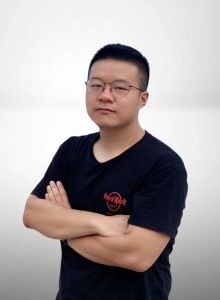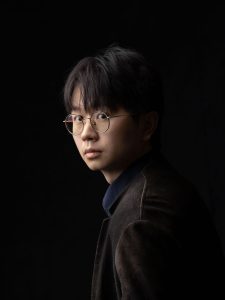
This program provides an opportunity for students to expose themselves to the world of digital media, covering virtual reality (VR), augmented reality (AR), mixed reality (MR), 2D digital arts creation, 3D modeling, animation, and AI’s application in the digital media. The course begins by laying the foundational knowledge of AR, VR, and MR, exploring how these technologies blur the lines between the real and virtual worlds. Students will learn about the principles of design and evaluation for interactions between humans and computers, as well as the interplay between physical and virtual spaces. This exploration will be supported by hands-on experience with state-of-the-art devices such as Apple Vision Pro, HTC Vive, Meta Quest 3, and Pico 4 Ultra. Through a combination of plenary lectures, small group discussions, interactive lab sessions, and final presentations, students will develop both theoretical understanding and practical skills. The program emphasizes collaborative learning and creative problem-solving, reflecting the core values of liberal arts education at Duke Kunshan University. By engaging with this diverse curriculum and utilizing cutting-edge tools, students will gain insights into the full spectrum of the virtual world, preparing them for future endeavors in the dynamic and interdisciplinary field of digital media.

Students will actively interact with teachers in the classroom or laboratory to develop their hands-on skills on the creation of virtual world. They will be encouraged by teachers to ask questions and interact with other students too.
Students will create their own virtual world with the guidance of teachers by using the cutting-edge tools. Moreover, students will interact with the latest AI tools to create the digital arts that otherwise are hard to imagine.
Students will gain fundamental theory and key techniques by exploring and immersing into the virtual world that is often full of exciting and stimulating, through the cutting-edge VR, AR and MR headsets and their accessories.
The program plans to arrange for students to visit digital media companies or relevant organizations. Through on-site visits, students will gain an in-depth understanding of industry practices in virtual world creation, thereby broadening their professional horizons. (Note: The visit arrangements will be finalized based on actual circumstances.)

Dr. Feng Tian is a professor in Kunshan Duke University, China. He has over 20 years of research experience in computer graphics, computer animation, virtual reality, augmented reality, computer games and artificial intelligence. He has published more than 120 papers in international journals and conferences, including IEEE Transactions on Visualization and Computer Graphics, ACM Transactions on Modeling and Computer Simulation, IEEE Transactions on Cybernetics, Visual Computer, Computer & Graphics, Multimedia Tools & Applications, International conference in Machine Learning (ICML), International Joint Conference on Artificial Intelligence (IJCAI), AAAI, Pacific Graphics (PG), IJCNN, CASA, etc. Prior to working in Kunshan Duke University, Dr. Tian was a Professor in Bournemouth University, UK, where he has taught courses in computer games and computer programming and an Assistant Professor at the School of Computer Engineering, Nanyang Technological University, Singapore, where he has managed a large research group on computer animation. He has been awarded research grants from Singapore Science and Technology R&D Agency, National Research Foundation, Royal Academy, Japan Society for the Promotion of Science, and EU Horizon 2020.

Yucheng Jin is an Assistant Professor in Computer Science at Duke Kunshan University. His research is centered on the convergence of Human-Computer Interaction (HCI) and Artificial Intelligence (AI). He is particularly focused on employing a human-centered methodology to the design and evaluation of AI systems, aiming to enhance human mental well-being and foster creativity. Prior to his current role, he was a Research Assistant Professor at Hong Kong Baptist University, where he contributed significantly to the development of Human-computer Interaction in the Department of Computer Science. Moreover, he also spent four years working as a senior UX designer at Lenovo Research. He obtained his Ph.D. in Augment Group at the University of Leuven (KU Leuven). He has co-authored over 30 peer-reviewed papers, including publications in premier conferences and journals in Human-Computer Interaction, such as CHI, CSCW, and IJHCS. His innovative work has also led to ten patents. Furthermore, he regularly serves as a (senior) program committee member for esteemed ACM conferences like RecSys and IUI.

HU Rui is Assistant Professor in Computation and Design at Duke Kunshan University, and a media artist working with video, installation, and computer simulation. His practice engages with issues related to time and temporality from a multitude of perspectives, such as causation, prediction, choice, and language. He is the recipient of the Best Experimental Animation Award at the 60th Ann Arbor Film Festival and a Jury Special Mention at the 25FPS Festival Croatia. His work has been shown in exhibitions and screenings at art spaces, institutions, festivals, and conferences, including the International Film Festival Rotterdam; UCCA Center for Contemporary Art, Beijing; IFVA at the Hong Kong Arts Centre; Times Museum, Guangzhou; Three Shadows, Xiamen; Objetifs, Singapore; Start Museum, Shanghai; Wuhan Biennale; Siggraph Asia; ISEA, among others. He received an MFA in Design Media Arts from the University of California, Los Angeles, and a BFA in Film with a minor in computer science from New York University.

Email: DKU-GSI@dukekunshan.edu.cn
